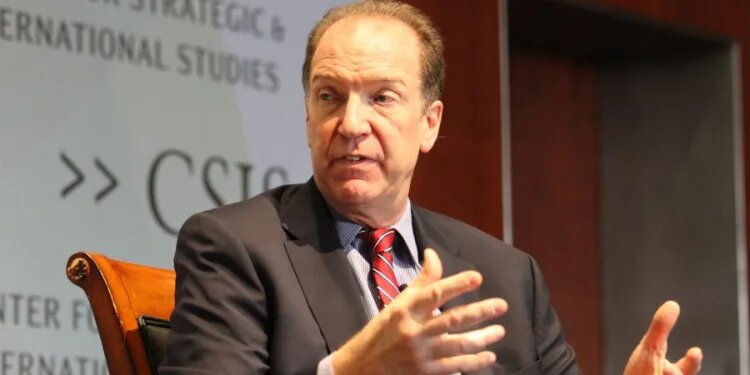Import limitations and the Central Bank of Nigeria‘s foreign exchange regulations, according to the World Bank, are the main drivers of food inflation in Nigeria.
This was discovered in Africa’s Pulse, a new biennial research from the World Bank.
The Nigerian central bank has enacted regulations barring specific commodities from using the Investors and Exporters (I&E) window to obtain FX at the official rate. Nonetheless, the Washington-based lender believes that policies aimed at fixing the currency rate and enforcing trade restrictions have contributed to Nigeria’s worrying inflation.
The National Bureau of Statistics (NBS) recently released the CPI (Consumer Price Index) report for March 2022, which revealed that Nigeria’s inflation rate accelerated to a five-month high of 15.92 percent, up 0.21 percent from the previous month’s rate of 15.7 percent.
The increase in the rate was ascribed to a 17.2 percent increase in the food index, while core inflation in March 2022 was 13.91 percent. Increases in the prices of bread and cereals, food products, potatoes, yam and other tubers, fish, meat, oils and fats were all blamed for the rise in food inflation.
The CBN classified 41 products on its FX restriction list in 2015, claiming that the action was required to conserve the country’s foreign reserve and stimulate local production of the restricted items.
Margarine, poultry and eggs, rice, and cement are among the commodities that made the 2015 list. In 2020, the apex bank added maize to its list of foreign exchange restrictions, instructing all licensed dealers to stop processing Forms M for maize/corn importation into the country immediately. Sugar and wheat have also been added to CBN’s list of FX restrictions.
In 2022, the CBN announced the introduction of e-evaluator and e-Invoice to replace hard copy final invoices as part of the documentation required for all import and export transactions.
On Wednesday, the naira fell 0.32 percent to N418.33 per dollar, its lowest level since January 4, 2022, compared to N417 per dollar in the previous trading session. In a similar vein, total foreign exchange sales fell 2.81 percent to $151.07 million.

On Thursday, the parallel market exchange rate finished at N580/$1, up 1.53% from the previous day’s close of N589/$1. According to information collected from BDCs in Nigeria, this is the case.
The World Bank said, “Rising food prices are the underlying factor behind the surge of headline inflation in Nigeria. Food prices have increased due to import restrictions and a nonflexible exchange rate management.”
The World Bank states that CBN forex policy is keeping the Naira strong in the I&E window. However, the value of the Naria remains weak in the black market.
“The current regime is keeping the official exchange rate of the naira artificially strong while the naira has weakened significantly on the parallel market. Additionally, the central bank has restricted importers’ access to foreign currency for 45 products and has reduced the supply to other importers,” the bank added.
“Inflation rose to a four-year high of 18.2% in March 2021, then declined to 16.0 percent in October 2021 as food price inflation fell from a peak of 22.9 percent in March to 18.3 percent,” according to the bank. In February 2022, headline inflation increased by 0.1 percentage point from the two previous months to 15.7 percent.”
Food and fuel shortages weighed on consumer prices, according to the bank, and the Ukraine crisis will almost surely exacerbate inflation rates.
“Despite gasoline subsidies, food and fuel shortages placed pressure on consumer prices,” it stated. Because the negative impacts of the war in Ukraine are still being felt, inflation is likely to stay high, with an annual prediction of 14.8 percent.





